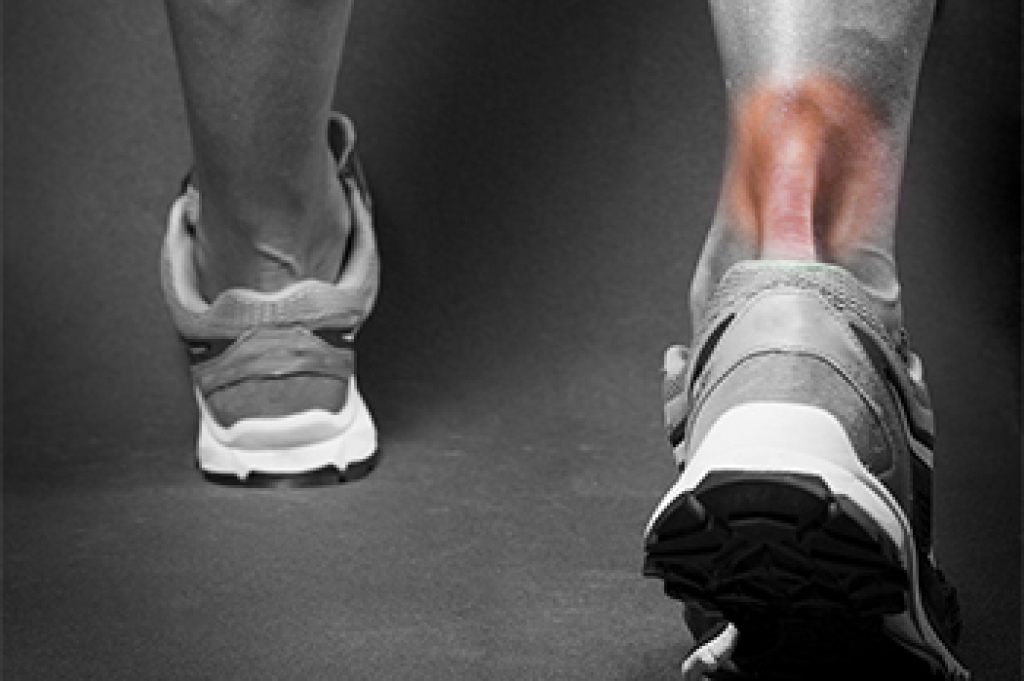 The Achilles tendon is the large tendon at the back of the ankle that connects the calf muscle to the heel bone. One common injury that occurs with the Achilles tendon is a rupture. This can either be a partial or a complete tear of the tendon, and it usually occurs during sporting activities like basketball and tennis, where pushing off and sprinting is frequent. While Achilles tendon ruptures can happen to anyone, they tend to affect males and people between the ages of 30 and 40. Other patients who are at a high risk for ruptures include those with poor flexibility, an inactive lifestyle, or who are on steroid medications. Achilles tendon ruptures are often indicated by abrupt pain in the affected area, the feeling of getting kicked in the back of the leg, weakness and bruising in the area, and a potential “popping” sound. Patients who may have ruptured their Achilles tendon, or would like information on preventing future ruptures, should consult with a podiatrist.
The Achilles tendon is the large tendon at the back of the ankle that connects the calf muscle to the heel bone. One common injury that occurs with the Achilles tendon is a rupture. This can either be a partial or a complete tear of the tendon, and it usually occurs during sporting activities like basketball and tennis, where pushing off and sprinting is frequent. While Achilles tendon ruptures can happen to anyone, they tend to affect males and people between the ages of 30 and 40. Other patients who are at a high risk for ruptures include those with poor flexibility, an inactive lifestyle, or who are on steroid medications. Achilles tendon ruptures are often indicated by abrupt pain in the affected area, the feeling of getting kicked in the back of the leg, weakness and bruising in the area, and a potential “popping” sound. Patients who may have ruptured their Achilles tendon, or would like information on preventing future ruptures, should consult with a podiatrist.
Achilles tendon injuries need immediate attention to avoid future complications. If you have any concerns, contact one of our podiatrists of Lexington Foot and Ankle Center, PSC. Our doctors can provide the care you need to keep you pain-free and on your feet.
What Is the Achilles Tendon?
The Achilles tendon is a tendon that connects the lower leg muscles and calf to the heel of the foot. It is the strongest tendon in the human body and is essential for making movement possible. Because this tendon is such an integral part of the body, any injuries to it can create immense difficulties and should immediately be presented to a doctor.
What Are the Symptoms of an Achilles Tendon Injury?
There are various types of injuries that can affect the Achilles tendon. The two most common injuries are Achilles tendinitis and ruptures of the tendon.
Achilles Tendinitis Symptoms
- Inflammation
- Dull to severe pain
- Increased blood flow to the tendon
- Thickening of the tendon
Rupture Symptoms
- Extreme pain and swelling in the foot
- Total immobility
Treatment and Prevention
Achilles tendon injuries are diagnosed by a thorough physical evaluation, which can include an MRI. Treatment involves rest, physical therapy, and in some cases, surgery. However, various preventative measures can be taken to avoid these injuries, such as:
- Thorough stretching of the tendon before and after exercise
- Strengthening exercises like calf raises, squats, leg curls, leg extensions, leg raises, lunges, and leg presses
If you have any questions please feel free to contact our offices located in Harrodsburg, Frankfort, Georgetown, and Lexington, KY . We offer the newest diagnostic tools and technology to treat your foot and ankle needs.